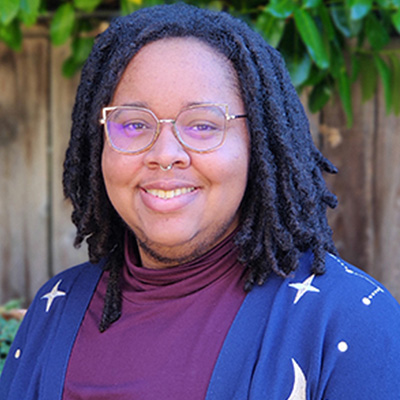Flocking together for mental health support
By April Miller, UO Alumni Association assistant director of marketing and communications
Though the winter months bring much to celebrate, we know it can also be a challenging season. Your UO Alumni Association and Ducks community are here to support you. Read tips from a fellow alum and therapist and learn about the UO’s initiatives to further mental health education and awareness.
While this time of year can bring excitement and joy, it can also be a source of stress, anxiety, and other mental health concerns for many. For those in the Pacific Northwest, December often brings the most rainfall of the year. Temperatures are falling, and the days are short—just under nine hours for the majority of December in Eugene. Celebrating the holidays can be a great way to beat the winter blues, but it can also be a source of stress and loneliness for some. These environmental factors, coupled with the often-distressing global news, can be challenging to process without support or access to coping skills.
That’s why, this month, we’re bringing you tangible mental health advice from a licensed therapist, inspiring stories of fellow UO alumni who have overcome obstacles and now support others in their mental health journeys, and information on initiatives the UO is pursuing to improve mental health for all. We want Ducks to know that they are not alone—whether this holiday season feels like the most wonderful time of year, the most difficult, or something in between. No matter where you are in your life’s journey, your UO Alumni Association and alumni community are here to support you.
Ask a therapist
When life’s challenges and obstacles arise, a mental health therapist can provide much needed support for working through difficult emotions, addressing areas of concern, and setting and achieving goals. Tahni Kalina, BS ’92 (psychology), is one example of this type of support to her clients. She’s a licensed independent clinical social worker and certified first responder counselor providing individual and family therapy in Yakima, Washington. Kalina is also a member of the UO Alumni Association’s board of directors, proudly giving back to fellow Ducks. We asked her a few questions about signs and symptoms to look for related to mental health challenges, how to cope with holiday stress, and top tips for improving mental well-being.
Tahni Kalina, BS ’92 (psychology), is one example of this type of support to her clients. She’s a licensed independent clinical social worker and certified first responder counselor providing individual and family therapy in Yakima, Washington. Kalina is also a member of the UO Alumni Association’s board of directors, proudly giving back to fellow Ducks. We asked her a few questions about signs and symptoms to look for related to mental health challenges, how to cope with holiday stress, and top tips for improving mental well-being.
Q: When we start to feel overwhelmed by our stressors, what are indicators that we may need more mental health support?
A: This time of year, although happy for many, is often a difficult time for those who experienced childhood trauma, are dealing with grief or loss, facing financial difficulties, or those who do not have family or a community to celebrate with. Signs to look out for that you might need additional mental health support may look like a negative attitude or irritability, lack of interest in participating, rejecting invitations, withdrawal from others, sleeping too much or too little, unusual weight loss or weight gain, or feelings of sadness or hopelessness.
Q: What are some practical ways that folks can support their mental health, particularly as it relates to holiday stress and seasonal affective disorder?
A: Taking the extra effort to make sure that you are eating nutritional, well-balanced meals, getting enough sleep on a regular basis, avoiding substance use, exercising regularly, trying to spend time outdoors, and engaging in activities that contribute to or benefit others in some way, such as volunteering or donating, can create protective factors during this difficult time. Also, taking time to think about what you value and what makes this time of year meaningful, being intentional to engage in activities that are consistent with that, and saying no to those that are not. Be mindful of your social media consumption, as it often can lead to comparisons with others who are only showing you their highlight reel.
Q: We know watching global events unfold over the past several months and year has been distressing for many, and particularly for people in marginalized groups with direct and indirect ties to various conflicts. What advice do you have for coping with these events, when they often feel out of our control?
A: Acknowledging your pain and finding a safe space to discuss your feelings with a supportive person or other members of the community you identify with can help to decrease the isolation and sense that you are alone in your pain. It can be helpful to divide up the issues that cause you distress into two categories, “what I can control” and “what is outside my control.” Things that are outside your control are important to acknowledge and find ways to release, because worrying won't change the outcome. For things that are within your control, even in some small way, taking action can improve your sense of hope and control.
Q: As we look forward to 2024, what is your top tip for someone hoping to improve their overall mental well-being in the next year?
A: A consistent practice of mindfulness and/or meditation can greatly improve mental well-being. It can be done in many different ways to fit your needs. It does not cost anything and can be done anywhere. One of my favorite resources is any book by Thich Nhat Hanh. He shares very short, plain speak guidance toward creating a simple mindfulness practice that enriches every aspect of your life when you incorporate it into your daily activities.
Special thank you to Tahni Kalina for sharing her expertise and guidance with UO alumni! This story is intended to inform and inspire, not to provide advice, diagnosis, or treatment. Seek support from a mental health professional or other healthcare provider for specific, individualized care.
A new national model in children's behavioral health
The University of Oregon’s Ballmer Institute for Children’s Behavioral Health is tackling the children’s mental health crisis by expanding the behavioral health workforce.
Launched in March 2022 thanks to a transformational gift from Connie, BS ’84 (journalism), and Steve Ballmer, the UO’s Ballmer Institute is a bold new approach to improving the behavioral health of children and adolescents.
Located on the UO’s northeast Portland campus, the institute will offer a child behavioral health academic major and bachelor’s degree program. These new academic pathways will expand the behavioral health workforce by creating a new mental health profession that only requires an undergraduate degree to deliver services in schools, health care systems, and the community. This model will be the first of its kind in the US.
The Ballmer Institute is partnering with schools in the Portland area, where clinical professors will provide students with applied training to promote children’s well-being and prevent mental health problems from developing or worsening.
The institute’s first cohorts of undergraduate students are enrolled in the childhood behavioral health program and are completing their first two years of study at the UO’s Eugene campus or a partner community college. Starting fall 2024, the Ballmer Institute will welcome students to the northeast Portland campus.
Making a difference in the mental health field
From supporting clients as therapists and psychologists, to conducting research related to human behavior and mental health outcomes, or strengthening behavioral health resources in the public education system, UO alumni are making a difference for the betterment of their communities. Below are just a few stories of alumni working in the mental health field.
A multidisciplinary approach to mental health research

The UO conducts research and trains leaders across multiple fields of study related to mental health.
The University of Oregon is a leader in mental health research and in training the next generation of mental health providers. This is represented in programs across campus, including the Institute of Neuroscience and Department of Psychology in the College of Arts and Sciences, the College of Education’s numerous graduate level programs in areas such as applied behavior analysis, couples and family therapy, school psychology, and counseling psychology, and the Ballmer Institute for Children’s Behavioral Health.
Researchers at the UO are examining a wide variety of topics related to mental health, such as the intersection of sleep, stress and alcohol, how time outdoors in nature affects teens’ stress levels, and the neural mechanisms behind the ability to shift attention among differing tasks.
Across various fields of study and disciplines, the university has a shared goal of serving as an agent of change and innovation that creates a better world for humanity. Improving mental health outcomes for all people is an important part of that mission.
Related Articles
UO Counseling Services for students
UO Counseling Services self-care kit
UO Employee Assistance Program, offering short-term professional counseling
UO’s new online psychology program makes studying portable
Neuroscience, elective courses, and the pursuit of happiness
Family is Everything: Rene Cabrera, MS ’22 (school psychology)
“Oregon Changed My Life”: Alison Cerezo, PhD ’09 (counseling psychology)






